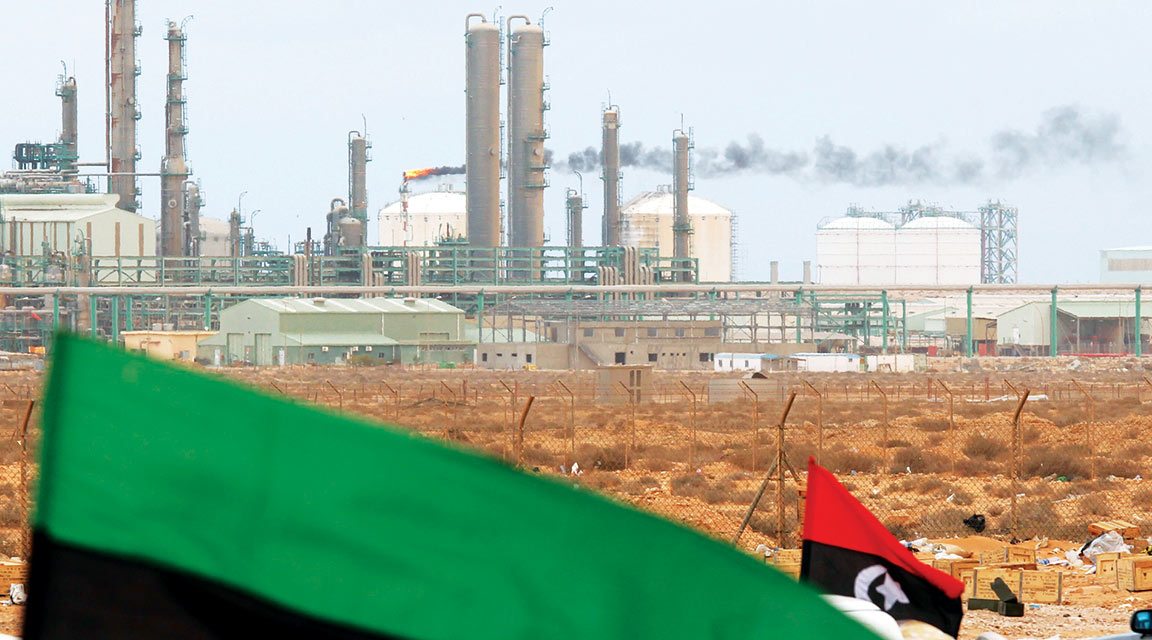

Libya’s Brega Petroleum Marketing Company has completed the process of assessing the damage to its facilities in Tripoli after a month of fighting in the capital, which have left more than a hundred dead.
Sources close to the company showed MEED a list of Brega’s damaged facilities due to militia fighting from late August. These include damage to at least eight storage tanks, for gasoil, liquified petroleum gas, and gasoline.
Workshops containing firefighting equipments and gas cylinders, a refuelling platform, and pipelines were also damaged, along with Brega’s commercial and safety departments building. Brega is a subsidiary of state-owned National Oil Corporation NOC), which is responsible for Libya’s domestic fuel distribution.
The assessment follows the release of a rare video on 22 September by Mustafa Sanalla, the chairman of NOC, warning that fuel supplies to the capital were under threat if the militias continued to fight around Tripoli’s Mitiga airport.
Only three out of 15 storage tanks had been left undamaged by fighting, going back to 2014, representing less than 20 per cent of its operational capacity. “We no longer have any logistical flexibility to supply Tripoli and its suburbs with fuel,” Sanalla warned.
The UN has attempted to broker a number of ceasefires but clashes continue unabated. General Electricity Company of Libya (Gecol) has also suffered damage, with staff forced to close the Tripoli power station after one of its generators was hit in the clashes. Gecol said Saturday its maintenance crews had been able to restore power.
Heavy weapons and fighting between rival militias were meant to be kept out of urban areas under a political accord in 2015. But lacking any real power, the internationally recognised Government of National Accord (GNA), led by prime minister Fayyaz Seraj, has been unable to reign in the militias.
Ghassan Salame, who heads the UN’s mission in Libya, has been pushing for the establishment of new security institutions in Libya, breaking away from the reliance on militias, which he calls “intolerable and unsustainable”.
Clashes between Tripoli's myriad militia groups appears to have settled down for now, but the risk of fighting sparking up again remains ever present. This inability to hold the Tripoli militias to account has been a major bug bear with the House of Representatives, Libya’s rival government in the east of the country, based in Tobruk.
The rival governments agreed to a Paris-brokered deal in May to hold national elections on December 10. Libya observers have largely agreed the timetable was over-ambitious, and even Salame admitted to AFP on Saturday the recent fighting made the election difficult, and the country may not be ready for another three to four months after.
You might also like...

Iran-Israel conflict risk eases off
26 April 2024
Fifa unveils Aramco as latest global partner
26 April 2024

UAE rides high on non-oil boom
26 April 2024

Qiddiya evaluates multipurpose stadium bids
26 April 2024
A MEED Subscription...
Subscribe or upgrade your current MEED.com package to support your strategic planning with the MENA region’s best source of business information. Proceed to our online shop below to find out more about the features in each package.





